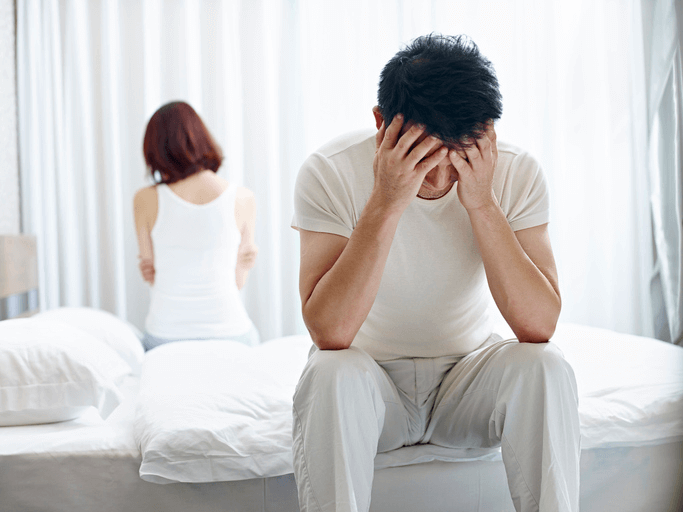Get Started
Complete the short form belowto Contact a Nexel Medical physician
Did you know that you can improve or enhance the results you can get from testosterone replacement therapy (TRT) by making good lifestyle choices?
There are many ways to naturally increase your hormone levels including testosterone. Doing so under proper medical supervision can significantly improve your testosterone levels and help improve or maintain the results you can achieve on TRT. This is why at Nexel Medical, we include lifestyle coaching, fitness, and nutritional training as part of our comprehensive approach to TRT.
Testosterone is one of the most important hormones for your strength, fitness, and vitality. Unfortunately, your level of testosterone declines as you age. Both men and women are subject to age-related decline in testosterone. But, the good news is you can naturally increase your levels of testosterone whether you are or are not in need of TRT!
The symptoms of low testosterone, also known as hypogonadism or simply “low T,” include:

But the only way to know for sure if you have low testosterone is through hormone testing and proper lab work.
Here are six ways that you can naturally increase your testosterone levels.
1. Exercise – Exercise is one of the most effective ways to boost your testosterone. Resistance training, such as weightlifting or high-intensity interval training, is the best exercise to boost testosterone. Such exercises also boost your level of growth hormone. Exercise can also help you lose weight. Obesity lowers your testosterone level.
2. Reduce stress – Stress is known to impact all hormone levels, and especially testosterone. High stress raises your levels of the hormone cortisol. Elevations in cortisol can quickly reduce testosterone. Stress management is essential to maintaining good testosterone levels.
3. Sleep – Critical hormones such as testosterone and growth hormone are mostly produced during periods of deep sleep. Not getting enough sleep negatively impacts hormone production. Making sleep a priority is vital to maintaining testosterone levels. Men should aim to sleep at least 7 to 8 hours each night.
4. Avoid alcohol – Abuse of alcohol lowers your testosterone.
5. Nutritional supplements – Certain herbs and nutritional supplements have been shown to increase testosterone production. These include: ginseng, ginger, ashwagandha root, DHEA, and yohimbe.
6. Enjoy a healthy sex life – Men will be happy to know that having sex regularly can increase testosterone production.
There are also certain foods that can increase your testosterone level. Add these to your diet to naturally increase testosterone:
There are some vitamins, herbs, and nutritional supplements that could help reduce some of the symptoms of andropause.
It is an inescapable fact that your testosterone levels will decline as you get older. Just as you can do things to minimize that decline, you could actually be doing things that accelerate the problem. Poor diet, bad sleep habits, stress, and lack of exercise can all contribute to low testosterone, or “low-T.”
Here are a few other “testosterone killers” you may not be aware of.
While some of the above lifestyle changes could help to reduce or prevent the symptoms of low testosterone, the only clinically proven treatment for this kind of hormonal imbalance is hormone replacement therapy. Synthetic testosterone replacement therapy is the main treatment given for men suffering from low T. However, depending on your symptoms and lab tests, your doctor may also recommend lifestyle changes and adjunctive therapies to enhance or maintain the results of TRT.
There are several forms of testosterone treatments. Low testosterone treatment can be given as topical gels and creams, subdermal pellets, skin patches, or testosterone injections. Our doctors have found testosterone injections to be the safest and most effective type of low testosterone treatment. Testosterone injections are prescribed as different “esters.” Each “ester” is simply a different chemical form of testosterone. They differ only in their molecular structure. The most commonly prescribed ester used for the treatment of low testosterone is testosterone cypionate.
The before-and-after results of testosterone replacement therapy for the treatment of andropause have been well documented and can be life-changing for men diagnosed with low testosterone.
As with any therapy or medication, your individual results of testosterone therapy will vary. However, when prescribed for low testosterone and taken as long as you follow your doctor’s instructions, most patients achieve remarkable results on testosterone therapy.
What Is the Normal Testosterone Level by Age?
Testosterone levels are measured in nanograms/deciliters (ng/dl). A nanogram is one-billionth of a gram. A gram is about 1/30 of an ounce. A deciliter measures fluid volume; it is 1/10 of a liter. The normal testosterone levels for adult men and women are:
Adults
| Age | Male (in ng/dl) | Female (in ng/dl) |
| 17 to 18 years | 300-1,200 | 20-75 |
| 19 years and older | 240-950 | 8-60 |
What Foods Are Known to Kill Testosterone?
Just as there are foods mentioned above that can help raise testosterone, there are foods that are known to be “testosterone killers.” Foods to stay away from to avoid worsening andropause symptoms include:
How Do I Know If My Testosterone Levels Are Low?
While there are signs and symptoms of low testosterone, the only way to know for sure if you have low testosterone is to have a proper lab test. Andropause or low testosterone is determined by a simple blood test. The normal range is 300 ng/dL to 1,000 ng/dL. However, what is normal for one man can be low for another. This is why testosterone replacement therapy is prescribed on a very individualized basis.
Do Natural Remedies for Low T Work?
The natural remedies for low testosterone mentioned on these pages may help to restore hormonal balance or prevent some of the symptoms of low T. However, the only medically proven way to effectively treat and reverse all of the many health issues related to age-related testosterone loss is a prescription for testosterone replacement therapy.
Now that you understand about low testosterone, TRT, and the impact of lifestyle on testosterone levels, why not contact us today and see what we can do to keep you young, strong, and vital?
Complete The Short Form Below To Contact a Nexel Medical Physician
